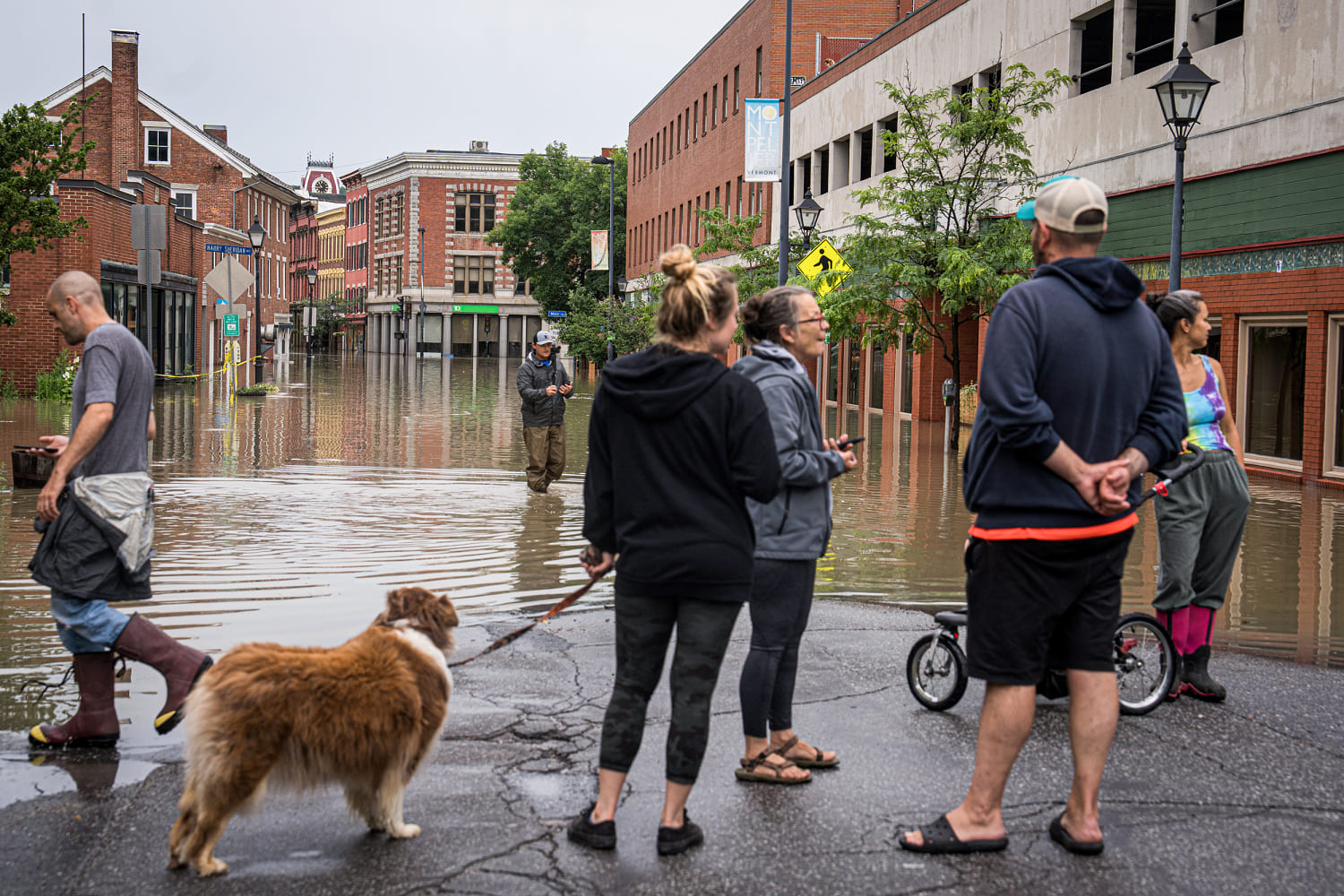
Vermont lawmakers this week passed a bill that aims to make big fossil fuel companies pay for damages caused by weather disasters fueled by climate change.
The legislation is modeled after the Environmental Protection Agency’s superfund program, which requires companies responsible for environmental contamination to clean up sites themselves or reimburse the government for the labor costs to do so.
The Vermont bill, known as its Climate Superfund Actit would similarly require big oil companies and others with high emissions to pay for the damage caused by global warming.
The amounts owed would be determined based on calculations of the degree to which climate change has contributed to extreme weather in Vermont and how much money those weather disasters have cost the state. From there, companies’ share of the total would depend on how many metric tons of carbon dioxide were released into the atmosphere between 2000 and 2019.
The law passed with just three negative votes in the Vermont State Senate in early April, followed by approval in the state House on Monday. The Senate will take a final vote later this week before the bill reaches Republican Gov. Phil Scott’s desk.
State Sen. Anne Watson, a co-sponsor of the bill, said she hopes that if the law goes into effect, it will lead big oil companies “to become providers of renewable energy sources and to keep fossil fuels in place.” underground.”
It is the first bill of its kind to be approved in the United States. Massachusetts, Maryland and New York are pursuing similar policies, but only New York’s bill has passed a chamber of its state legislature. Sens. Bernie Sanders, I-Vt., and Chris Van Hollen, D-Md., also attempted to introduce comparable legislation at the federal level as part of the infrastructure bill passed in 2022, but it was not included in the final draft.
In Vermont, the money fossil fuel companies pay would go toward modernizing infrastructure, waterproofing schools and public buildings, cleaning up storms and addressing the public health costs of climate change.
The bill relies on the ability to assess how much damage in Vermont has been caused by climate change — an accounting that would rely on a line of research known as attribution science. Over the past 20 years, researchers have honed their ability to confidently model the degree to which human influence has contributed to the severity and frequency of extreme weather.
“We are able to say very clearly, ‘We would not be experiencing these intense global temperatures without human-caused climate change and the history of carbon pollution,’” said Andrew Pershing, vice president of science at Climate Central, a nonprofit organization. for-profit that conducts attribution scientific research.
Pershing pointed to extremely heavy rainfall as something scientists can attribute to a warmer atmosphere.
“New England has had a 60% increase in precipitation days,” he said, explaining that “for every 1 degree Fahrenheit increase in temperature, you get a 4% increase in the amount of water vapor that the atmosphere can retain.”
In Vermont specifically, last winter was the warmest on record. This came after the state suffered record rainfall in July, which caused catastrophic flooding. The storm cost the Northeast around US$2.2 billion, according to an estimate from National Oceanic and Atmospheric Administration.
State Sen. Russ Ingalls, a Republican, said he cast one of the three “no” votes because he predicts the law would trigger major litigation and thinks the money the state would have to spend on those legal battles could be better used.
“The decision was made to go to war with companies that probably have as many lawyers as we citizens do,” he said. “We will be crushed like a bug.”
Indeed, the law is expected to face intense challenges in the courts once Vermont determines which companies will be asked to pay and how much. Previous superfund cases have been time-consuming, complex and expensive.
The American Petroleum Institute, one of the main lobbies for the interests of oil and natural gas companies, sent a letter to the state Senate opposing the bill, saying it “violates equal protection and due process rights by holding corporations accountable for the actions of society at large.”
The group declined to offer further comment beyond the letter.
But Watson said Vermont’s attorney general told lawmakers she is “ready and willing to defend this law.”
“The science linking climate change to severe climate damage is robust enough to withstand close scrutiny,” he added.
Other supporters of the bill similarly say that Vermonters should not bear the costs of responding and preparing for climate change.
“You see cities across the state underwater and communities and businesses financially devastated. The reality of the climate crisis is really coming to light,” said Ben Edgerly Walsh, director of the climate and energy program at the Vermont Public Interest Research Group, which has been defending the approval of the project. “These are facts that we are dealing with in real time and that we need financial resources to deal with.”
Once the bill reaches Scott’s desk, he could still choose to veto it, although the governor has not indicated one way or another whether he is likely to do so.
If he vetoes the bill, Vermont law stipulates that it would be sent back to the Legislature, where it would have to be approved again in the Senate and House with supermajorities to override the veto. Given that the bill has already passed with an absolute majority – and that Scott has faced several veto overrides during his term – one would expect him to do so again.
This story originally appeared on NBCNews.com read the full story


































